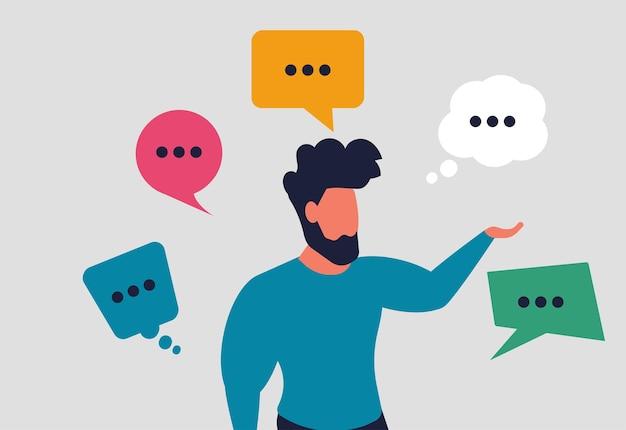Are you looking to enhance your communication skills? Whether you’re a student, professional, or simply want to improve your ability to connect with others, developing strong listening and speaking skills is essential. In today’s fast-paced world, effective communication can make all the difference in personal and professional relationships.
But where do you start? In this blog post, we’ll explore various activities that can help you hone your listening and speaking abilities. From understanding the different types of listening skills to practicing empathic listening, we’ll cover it all. So, grab a cup of coffee and let’s dive in!

Listening Skills: The Key to Effective Communication
Before we delve into the activities, let’s take a moment to understand the importance of listening skills. You may be wondering, “What are two types of listening skills?” Well, active and passive listening are the two primary types. Active listening requires your full engagement and focus, while passive listening is more relaxed, such as when you’re listening to background music.
Now that we’ve covered the basics, let’s explore how empathy plays a role in listening. Empathy is the ability to understand and share the feelings of another person. But how does it relate to listening? Empathic listening involves not only hearing what the other person is saying but also understanding their emotions and point of view.
Integrating these skills into your daily interactions can significantly improve your relationships and enable you to connect with others on a deeper level. So, let’s dive into some practical activities that can help us develop our listening and speaking abilities!

What Are The Activities to Develop Listening and Speaking Skills?
To master the art of listening and speaking, one must be willing to put in some effort and engage in various activities. Here are some hilarious, yet effective activities that can help you enhance your listening and speaking skills:
1. The Mimic Master
Become a mimic master by imitating different accents and voices. Challenge yourself to imitate everyone from Arnold Schwarzenegger to your grandma. Not only will this activity improve your speech clarity and pronunciation, but it will also give you a great excuse to entertain your friends with your newfound talent!
2. The Storytelling Showdown
Gather a group of fellow language learners for a storytelling showdown. Each person has to tell the most outrageous, imaginative story using the language you’re learning. This exercise will boost your speaking skills as you navigate through the twists and turns of your own fabricated adventure. Remember, the wilder, the better!
3. The Podcast Party
You don’t need an actual party to have fun; all you need are some engaging podcasts! Tune in to podcasts that stimulate your interests and listen actively. Make it a habit to summarize what you’ve heard and share your thoughts with others. It’s a fantastic opportunity to improve your listening skills while staying informed or entertained.
4. The Tongue Twister Extravaganza
Challenge yourself with tongue twisters galore! Tongue twisters are not only hilarious but also powerful tools to improve your pronunciation and enunciation. From “Peter Piper picked a peck of pickled peppers” to “She sells seashells by the seashore,” try saying these phrases quickly without getting your tongue in a muddle.
5. The Debate Duel
Engage in friendly debates with your language-learning buddies. Choose topics that ignite passionate discussions, and take turns arguing for and against them. This activity will not only enhance your speaking skills but also boost your critical thinking abilities. Plus, it’s a fantastic way to bond with your fellow language enthusiasts!
6. The Movie Marathon
Lights, camera, action! Organize a movie marathon, but here’s the twist: watch movies in the language you are learning and avoid subtitles whenever possible. By immersing yourself in the language through films, you’ll train your ears to comprehend different accents, tones, and speeds. Remember to have some popcorn ready, because language learning can be tasty too!
7. The Song Sing-Along
Who says karaoke is limited to one language? Find songs in the language you’re learning and sing along like there’s no tomorrow. This activity helps improve your pronunciation, vocabulary, and listening skills. Whether you’re belting out a power ballad or rapping at lightning speed, embrace the music and enjoy the journey towards becoming a language maestro!
Now that you have these exciting activities to supercharge your listening and speaking skills, why wait? Dive in, have fun, and watch your language abilities soar to new heights. Remember, laughter is the best teacher, so embrace the humor while embracing the language!
FAQ: Developing Listening and Speaking Skills
Welcome to our FAQ on developing listening and speaking skills! In this comprehensive guide, we’ll answer some of the most common questions about improving your abilities to listen and speak. Whether you’re a student, a professional, or someone simply looking to enhance your communication skills, we’ve got you covered!
What are Two Types of Listening Skills
When it comes to listening, there are two primary types of skills: active and passive listening.
Active Listening
Active listening involves being fully engaged in the conversation. It means paying attention to verbal cues, body language, and underlying emotions. When you actively listen, you demonstrate your interest and show empathy towards the speaker.
Passive Listening
On the other hand, passive listening involves receiving information without actively engaging with it. While passive listening can still help you absorb information, it’s not as impactful as active listening when it comes to building strong communication skills.
What is Empathy and Examples
Empathy is the ability to understand and share the feelings of another person. It’s an essential skill for effective communication, as it helps you connect with others on a deeper level. Here are a couple of examples to illustrate empathy:
-
Imagine your friend is feeling down after a tough day at work. Instead of dismissing their feelings, you offer a listening ear and validate their emotions by saying, “I understand how frustrating that must be. Is there anything I can do to help?”
-
During a conversation, your colleague shares their excitement about a recent promotion. Instead of being indifferent, you congratulate them sincerely, saying, “Wow, that’s fantastic news! You’ve worked hard for it, and I’m genuinely happy for you.”
What do You Mean by Listening and Speaking Activities
Listening and speaking activities refer to exercises or tasks designed to enhance your listening and speaking skills. These activities provide a structured approach to practice and improve your communication abilities.
What is Empathic Listening with Example
Empathic listening revolves around truly understanding and connecting with the speaker’s emotions. It involves actively putting yourself in their shoes and responding in a supportive and understanding manner. Here’s an example to illustrate empathic listening:
Imagine a friend is sharing their struggles with a difficult relationship. Instead of jumping in with advice or personal anecdotes, you focus on listening without judgment. You respond empathetically, saying, “It sounds like you’re going through a tough time. I’m here for you, and I understand how challenging relationships can be.”
How do You Introduce Yourself in Assessment of Speaking and Listening
In an assessment of speaking and listening, it’s crucial to introduce yourself effectively. Here’s a simple guideline to follow:
- Begin by stating your name and any relevant background information.
- Highlight your interests or areas of expertise related to the assessment topic.
- Express your enthusiasm for participating and your eagerness to engage in effective communication.
For example: “Hello, everyone! My name is [Your Name], and I have a background in [relevant field]. I’m particularly interested in [assessment topic] and have been actively engaged in studying and applying its principles. I’m thrilled to be part of this assessment and look forward to exciting conversations and learning opportunities!”
How can You Improve Your Listening Skills
Improving your listening skills requires practice and dedication. Here are five tips to help you enhance this essential communication skill:
Prioritize Active Listening
By actively engaging in conversations, focusing on the speaker, and avoiding distractions, you demonstrate your commitment to listening and understanding.
Practice Mindfulness
Developing mindfulness helps you stay present, fully attentive, and aware of your own biases or assumptions that may hinder effective listening.
Seek Feedback
Ask for feedback from friends, colleagues, or mentors to identify areas where you can improve your listening skills. Constructive criticism can be invaluable.
Use Visualization Techniques
Visualize the speaker’s thoughts and emotions, imagining yourself in their situation. This exercise helps build empathy and understanding.
Engage in Active Learning
Participate in group discussions, workshops, or seminars that encourage active listening and provide opportunities for interaction and feedback.
What are the Activities to Develop Listening and Speaking Skills
To develop your listening and speaking skills, you can try the following activities:
1. Debates and Discussions
Participate in debates or discussions where you can practice listening to different perspectives and effectively communicating your own thoughts.
2. Language Exchange Programs
Join language exchange programs that facilitate conversation with native or fluent speakers of a language you’re learning. This activity challenges you to actively listen and respond effectively.
3. Public Speaking Clubs
Engage in public speaking clubs or organizations that provide a supportive environment for practicing your speaking skills. These clubs often offer structured activities that help enhance your communication abilities.
4. Podcasts and Audiobooks
Listen to podcasts and audiobooks on various topics of interest. This activity helps improve your listening skills while exposing you to different speaking styles and tones.
5. Storytelling Sessions
Participate in storytelling sessions, where you can share personal anecdotes or stories. This activity develops both your listening and speaking abilities as you engage with the narratives of others.
Remember, practice and perseverance are key to mastering any skill. By incorporating these activities into your routine, you’ll be well on your way to becoming a proficient listener and an effective communicator!
Congratulations on reaching the end of our comprehensive FAQ on developing listening and speaking skills! We hope this guide has provided you with valuable insights and practical tips to enhance your communication abilities. Remember to always prioritize active listening, practice empathy, and engage in activities that challenge and stimulate your learning. Happy listening and speaking!
